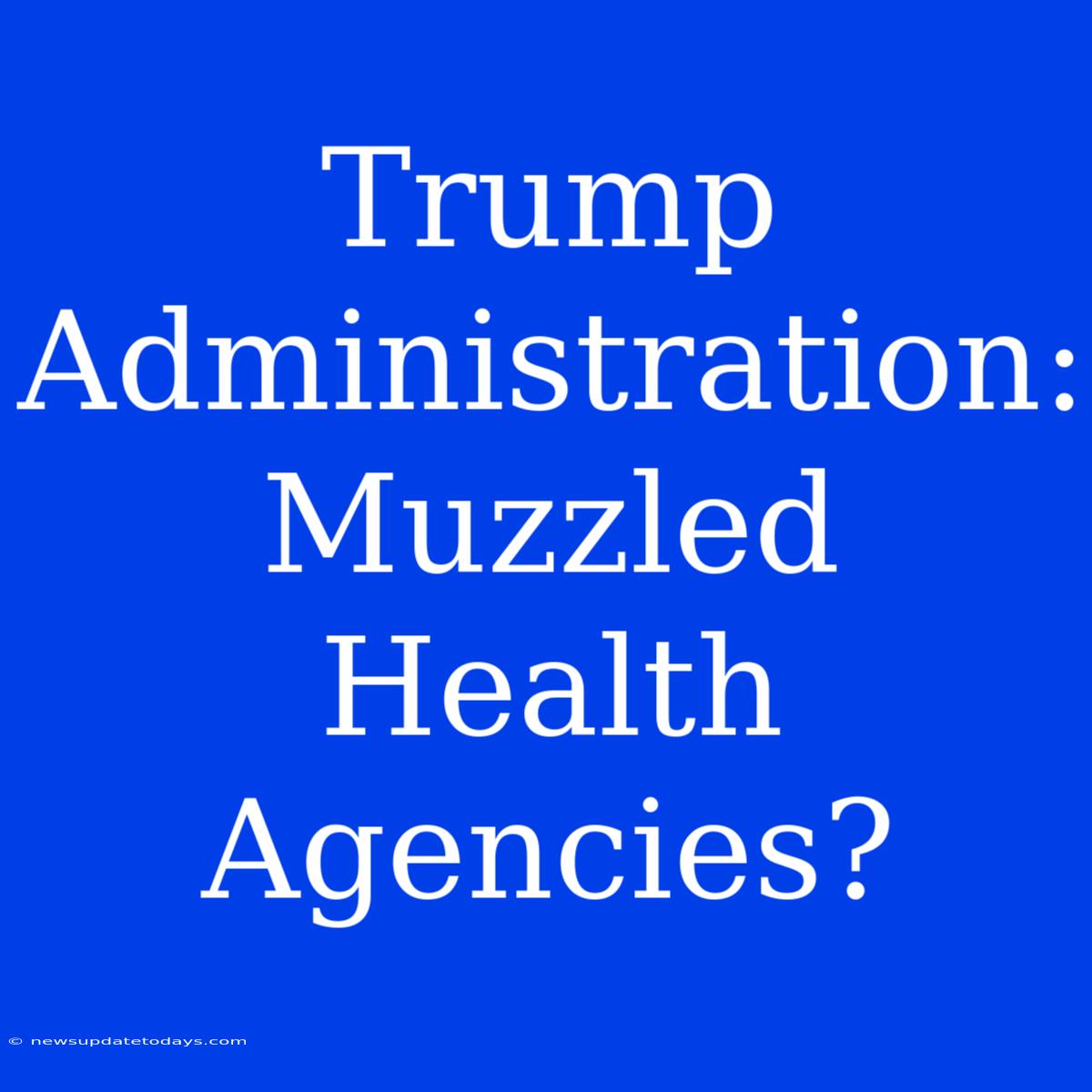Trump Administration: Did Gag Orders Silence Public Health?
The Trump administration's relationship with federal health agencies remains a subject of intense debate. Accusations of suppressing scientific findings and restricting public health communication dominated headlines throughout his presidency. Did the administration actively muzzle these vital agencies, or were these actions justified responses to bureaucratic inefficiencies or political disagreements? Let's delve into the key arguments.
Allegations of Suppression: A Gag Order on Science?
Numerous reports and accounts suggest the Trump administration interfered with the ability of agencies like the Centers for Disease Control and Prevention (CDC) and the Food and Drug Administration (FDA) to communicate effectively with the public. These allegations center around:
-
Political Interference in Scientific Reports: Several instances emerged where scientists claimed their reports were altered or suppressed to align with the administration's political agenda. This included edits to reports on climate change, environmental regulations, and public health crises.
-
Restrictions on Public Communication: Employees at various agencies reported facing restrictions on communicating with the press or the public, limiting the dissemination of crucial information. This was especially concerning during public health emergencies.
-
Appointments of Politically Aligned Officials: Critics argued that the administration appointed individuals to key positions within health agencies who lacked scientific expertise but were loyal to the administration's political goals. This raised concerns about objectivity and scientific integrity.
Counterarguments: Efficiency vs. Suppression
Defenders of the Trump administration's actions often countered that these measures were necessary for efficiency and to prevent the spread of misinformation. Arguments included:
-
Streamlining Bureaucracy: Some argued that the administration was simply trying to streamline bureaucratic processes and eliminate unnecessary redundancies within the agencies.
-
Preventing Misinformation: The administration may have believed that certain scientific findings were premature, misleading, or could cause unnecessary panic. Their actions, therefore, were presented as a means of controlling the narrative and ensuring accurate information dissemination.
-
Protecting National Interests: Certain decisions, particularly those related to international health collaborations, were framed as necessary for protecting national interests and avoiding undue foreign influence.
The Lasting Impact: Erosion of Public Trust?
Regardless of the specific motivations behind the administration's actions, the consequences are still being assessed. The allegations of suppression have raised serious questions about the integrity and independence of federal health agencies. The potential erosion of public trust in these institutions remains a significant concern. The long-term impact on public health communication and the preparedness for future crises is a subject of ongoing scrutiny and debate. Transparency and accountability are paramount to restoring and maintaining public confidence in the nation's vital health infrastructure.
Conclusion: Unanswered Questions Remain
The full extent of the Trump administration's influence on federal health agencies remains unclear. While some actions might have been justified improvements to bureaucratic processes, many instances suggest a pattern of interference that compromised the integrity of scientific communication and potentially jeopardized public health. Further investigation and analysis are crucial to fully understand the lasting consequences of these policies and to prevent similar situations in the future. The debate highlights the delicate balance between political priorities and the vital need for transparent, scientifically-driven public health messaging.

